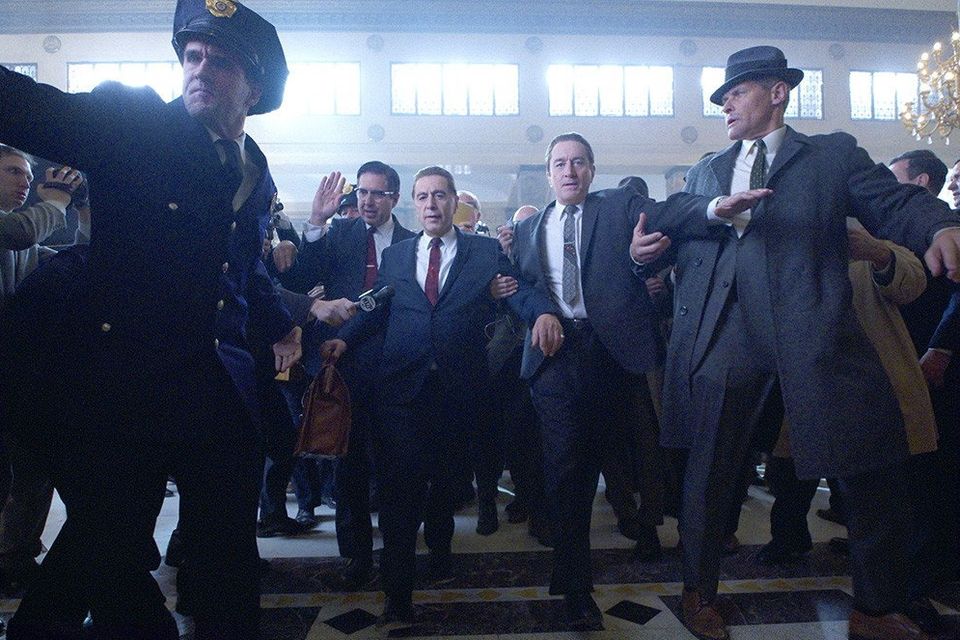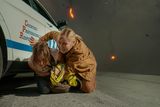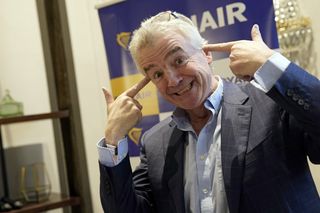The Irishman review: 'I’m not sure if The Avengers is cinema or not, but this sure as hell is'
5 stars
A shot from Martin Scorsese's 'The Irishman', which stars Robert De Niro and Al Pacino
Martin Scorsese has incurred the wrath of the Marvel geeks by suggesting films like The Avengers aren’t really cinema at all. It’s not up to him to be deciding what’s cinema and what isn’t, but the great man’s crankiness may have been inspired by his struggle to get The Irishman made.
The current glut of superhero films and witless remakes leaves little room in Hollywood for original works, not even ones directed by Mr. Scorsese and starring those little known bit players De Niro and Pacino.
This project has been in development for well over a decade, and the director recently said he’d never have got it made if Netflix hadn’t given him an offer he couldn’t refuse.
The Irishman’s budget skyrocketed thanks to its period setting, Mr. Scorsese’s preferred running length (epic) and his decision to use the latest digital de-aging process to make it possible for De Niro and co to play their characters’ younger selves. So Netflix, whom I and others have tended to paint as the sworn and mortal enemy of theatrical distribution, are the knights in shining armour here, fronting up a $160 million budget and cheerfully stomaching a three-and-a-half-hour running time. Ought we be thanking them? We ought.
Robert De Niro and Al Pacino have been de-aged for The Irishman
The Irishman is based on I Heard You Paint Houses, Charles Brandt’s 2004 book informed by the recollections of Frank Sheeran, a war veteran, one time Teamsters union official and alleged associate of the Bufalino crime family. According to Sheeran, a Pennsylvania-born Irish-American who died in 2003, he killed dozens of people at the behest of the Bufalinos, including Jimmy Hoffa, the Teamsters charismatic leader whose sudden disappearance in 1976 has never been solved.
Is any or all of that true? It doesn’t really matter: Scorsese’s film takes Sheeran’s account at face value and uses it to create a telling critique of America’s slow but ineluctable moral decline.
Robert De Niro is Frank Sheeran, a recently demobbed soldier who’s working as a truck driver when he encounters Russell Bufalino (Joe Pesci), a soft-spoken mafia crime boss. Bufalino takes a shine to him, and astutely realises that Frank has the makings of a loyal, dutiful henchman.
In a brief flashback to the US Army’s slow liberation of Italy, we find out how Sheeran became brutalised by being ordered to kill German prisoners. When Bufalino asks Frank by nod and wink to rub out a liability, he equates this request with the army chain of command, and silently goes about his duty. He later finds another master in Jimmy Hoffa (Al Pacino), the charming, histrionic, megalomaniac union boss whose close association with the Bufalinos is coming unstuck.
We need your consent to load this Social Media content. We use a number of different Social Media outlets to manage extra content that can set cookies on your device and collect data about your activity.
As the story unfolds, slowly and splendidly, America’s legitimate history unfolds alongside the underworld’s. It’s implied that organised crime has infiltrated not just the Teamsters but high politics: Joe Kennedy’s old bootlegging friends in the mafia helped get his son Jack elected, and might have had a hand in his assassination. They may also have contributed to Richard Nixon’s campaign.
American society is rotting slowly from the inside, becoming ever more vulgar, violent and iniquitous. And so in this film, as he has in others, Martin Scorsese suggests that mobsters may be the most honest expression of late 20th century Americanism.
Martin Scorsese is almost 77, Al Pacino is 79, Joe Pecsi 76, Robert De Niro 75, yet between them they’ve produced something to stand with their greatest work. Joe Pesci, coaxed out of retirement by De Niro, is extraordinarily good as the watchful, spider-like Russell Bufalino; Al Pacino, without overacting, catches perfectly the charisma and craziness of Hoffa; Harvey Keitel, Anna Paquin, Stephen Graham and Bobby Cannavale pack out an astonishing cast; and De Niro is absolutely fascinating as the silent, reserved, icily efficient killer.
But Frank is no monster; he believes he’s a loyal friend, equates killing with duty and hasn’t entirely given up on God. In a haunting framing device, he hovers patiently in an old folk’s home, chatting about his past with a priest who must be wondering how far God’s forgiveness extends. Sensing the end is near, he orders his own coffin, but Frank has no peace of mind, and Scorsese’s film subtly explores the price to be paid by those who live beyond moral norms.
When Kennedy’s killed, Frank’s friend Hoffa is delighted, but Sheeran watches strangers hug in grief and wishes he could be so innocently American. His story is told in splendid, melancholic style by Scorsese, who uses digital de-aging so skilfully it hardly bothers you at all. Neither does The Irishman’s epic length, which is entirely justified by the film’s grandeur, and moral seriousness. I’m not sure if The Avengers is cinema or not, but this sure as hell is.
(16, 208 mins)
Also releasing this week:
The Aeronauts
4 stars
We need your consent to load this Social Media content. We use a number of different Social Media outlets to manage extra content that can set cookies on your device and collect data about your activity.
In the late 18th century, a brave band of pioneers took to the silent, uncharted skies in skimpy balloons that would provide breakthroughs in science, breathtaking new perspectives on our world.
Tom Hooper’s gorgeous-looking drama is based on real stories and stars Eddie Redmayne as James Glaisher, a meteorologist who wants to fly higher than anyone has before so he can better understand the weather.
To get him there he needs expert aeronaut Amelia Rennes (Felicity Jones), whose circus antics belie a steely resolve that will come in very handy.
It’s beautifully shot, oddly gripping, and as they’ve proved before, Jones and Redmayne make a compelling double act.
(12A, 100mins)
Meeting Gorbachev
4 stars
We need your consent to load this Social Media content. We use a number of different Social Media outlets to manage extra content that can set cookies on your device and collect data about your activity.
Though Ronald Reagan was quick to claim credit, it was Mikhail Gorbachev who did most to defuse the Cold War and reduce simmering nuclear tensions.
Now 87 and in ill health, the wily old campaigner has lost none of his insight, which he generously shares with Werner Herzog in this succinct and intimate documentary.
A clever peasant from the Caucasus, he rose quickly within the Communist Party in the 1970s, and became leader in 1985.
Cut from a different cloth to his predecessors, Gorbachev listened to the people, favoured progress and openness, and led the USSR towards democracy of a sort. He would be poorly thanked for his efforts.
(No Cert, IFI, 90mins)
The Good Liar
2 stars
We need your consent to load this Social Media content. We use a number of different Social Media outlets to manage extra content that can set cookies on your device and collect data about your activity.
A daft and fruity British thriller based on a book I never want to read, The Good Liar stars Ian McKellen has Roy Courtnay, a suave conman who swindles elderly women out of their nest eggs.
He thinks he’s hit the jackpot when he meets Betty (Helen Mirren), a handsome suburban widow with a couple of million in the bank. So Roy plays up his infirmities, persuades her to let him move in and is on the point of cashing in when an ancient difficulty presents itself.
Though almost plausible at first, Bill Condon’s film becomes ridiculous late on as it plunges into clumsy flashbacks, and Mr. McKellen overacts outrageously throughout.
(15A, 109mins)
Read more:
Join the Irish Independent WhatsApp channel
Stay up to date with all the latest news














